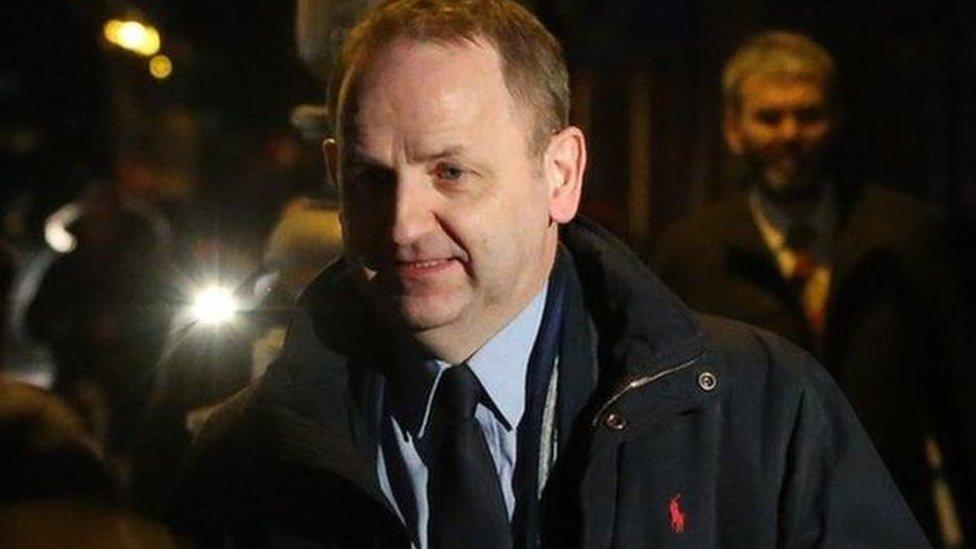Ireland's leaders in talks to avoid snap election
- Published
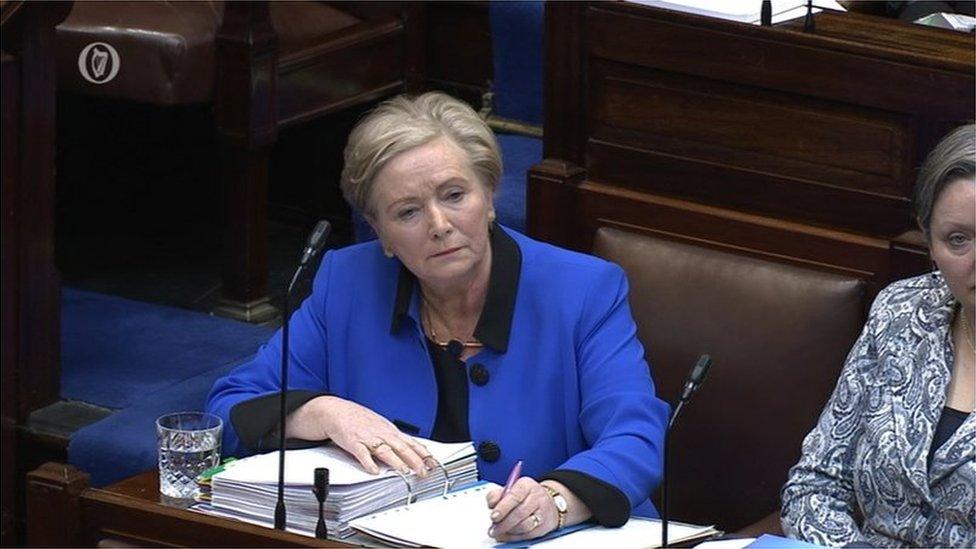
Frances Fitzgerald was Irish minister for justice during a police whistleblower controversy
The leaders of Ireland's two main political parties are holding crisis talks on Tuesday in an attempt to avoid a snap general election.
Calls for Ireland's deputy prime minister to resign over a controversy involving a police whistleblower could end a deal between the parties.
Fianna Fáil abstains in key votes to allow the biggest party, Leo Varadkar's Fine Gael, to lead a ruling coalition.
It comes ahead of an EU summit in which Ireland will play a major role.
If an election is called, there are fears that it could complicate next month's EU meeting, at which Ireland's position will influence the assessment of the UK's progress in Brexit talks.
Revelations about a plan to discredit a police whistleblower during an inquiry have led opposition parties to call for the tanaiste (Deputy Prime Minister) Frances Fitzgerald to resign over her handling of the affair.
At the time she was the Irish minster for justice.
She faces a vote of no confidence in the Dáil (Irish parliament) on Tuesday.
However, a spokesperson for the government said it retained full confidence in Ms Fitzgerald.
The dispute has created a political crisis and if the parties fail to reach an agreement then it could force a general election before Christmas.
Both parties have said that they want to avoid a poll.
Mr Varadkar, Ireland's taoiseach (prime minister), would still travel to the EU summit next month which will decide whether the Brexit talks will move onto the next phase.
What is behind the dispute?
In 2015, the O'Higgins Commission was established by the government to examine malpractice allegations in the Garda's (Irish police) Cavan/Monaghan division.
On Monday evening, it was revealed that the now tánaiste (Irish deputy prime minister) was personally sent a letter from one of her officials in July 2015, which discussed the "aggressive stance towards Sgt Maurice McCabe at the commission".
The letter is one of a number of documents published by the department of justice from a record trawl requested by Taoiseach Leo Varadkar.
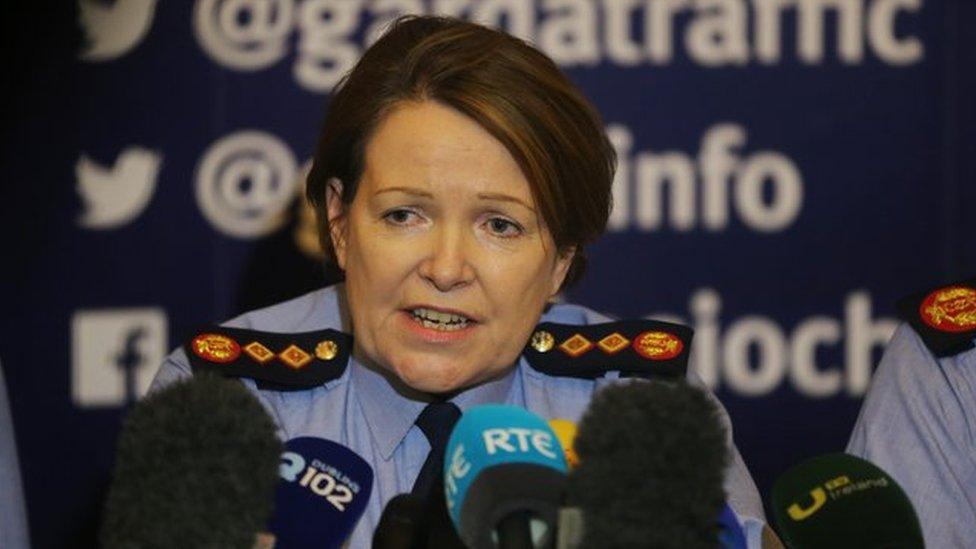
Garda Commissioner Noirin O'Sullivan retired in September
In a series of tweets on Monday evening, Ms Fitzgerald wrote: "As Justice Minister I could not interfere with the O'Higgins Commission. This is confirmed twice in today's docs & has been confirmed by the Attorney General."
A judge-led tribunal is also being held to establish whether senior Garda officers were involved in an alleged smear campaign against whistleblower Sgt Maurice McCabe.
Ms Fitzgerald also wrote: "The Tribunal will objectively judge the appropriateness of my conduct. I look forward to giving my evidence to the Tribunal early in January."
Allow X content?
This article contains content provided by X. We ask for your permission before anything is loaded, as they may be using cookies and other technologies. You may want to read X’s cookie policy, external and privacy policy, external before accepting. To view this content choose ‘accept and continue’.
Allow X content?
This article contains content provided by X. We ask for your permission before anything is loaded, as they may be using cookies and other technologies. You may want to read X’s cookie policy, external and privacy policy, external before accepting. To view this content choose ‘accept and continue’.
Last week, Ms Fitzgerald faced questions in the Dáil over an email she was sent by former Garda (Police)Commissioner, Noirín O'Sullivan, which outlined the legal strategy to be pursued against Sgt Maurice McCabe.
Ms Fitzgerald said she could not remember reading it.
However, she recently admitted she was made aware a year earlier than she had previously stated, that lawyers for the garda were going to attempt to discredit Sgt McCabe.
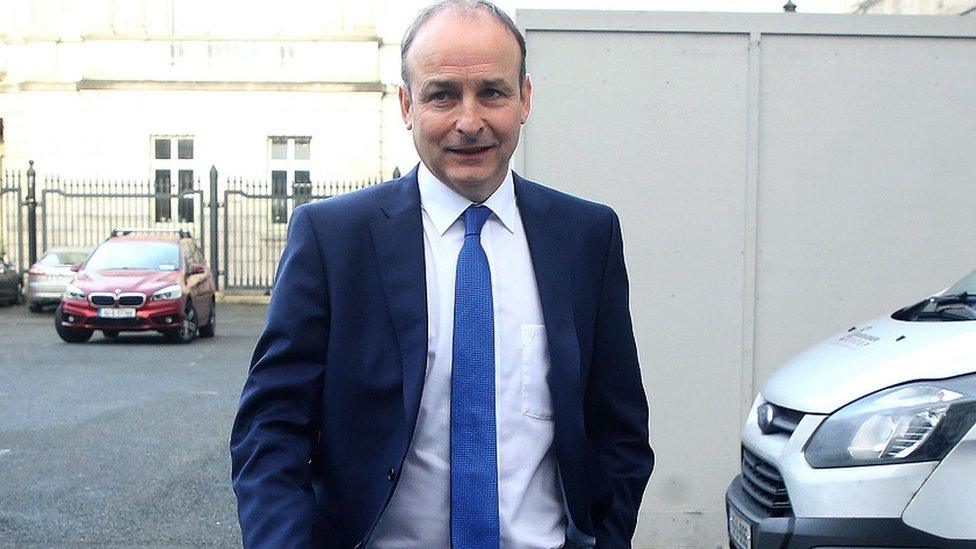
Fianna Fáil leader Micheál Martin said the situation would be resolved if Ms Fitzgerald resigned
- Published25 November 2017
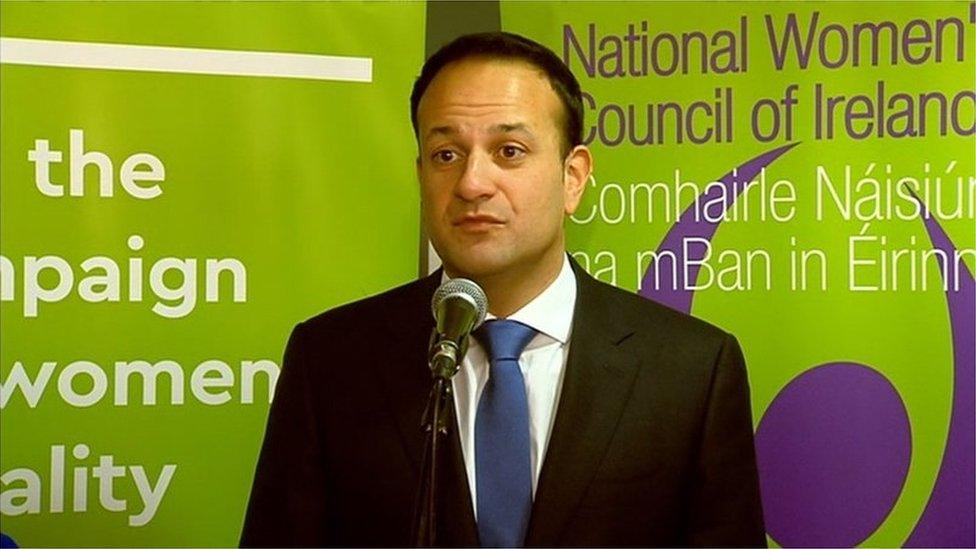
- Published24 November 2017
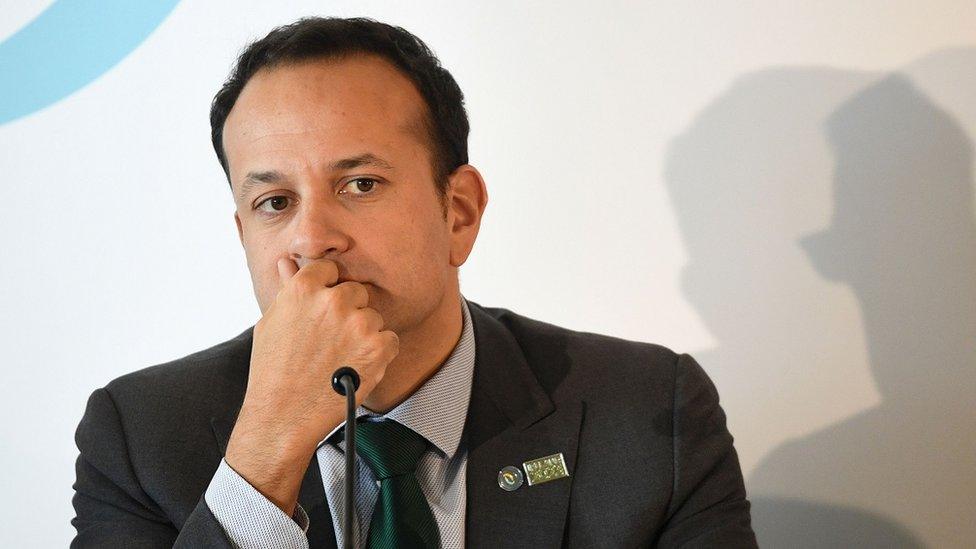
- Published24 November 2017
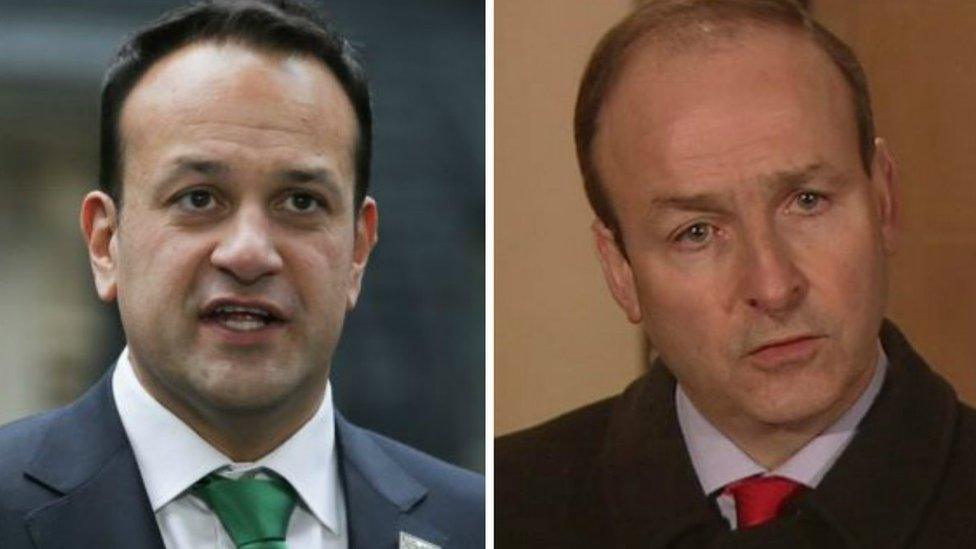
- Published6 May 2017
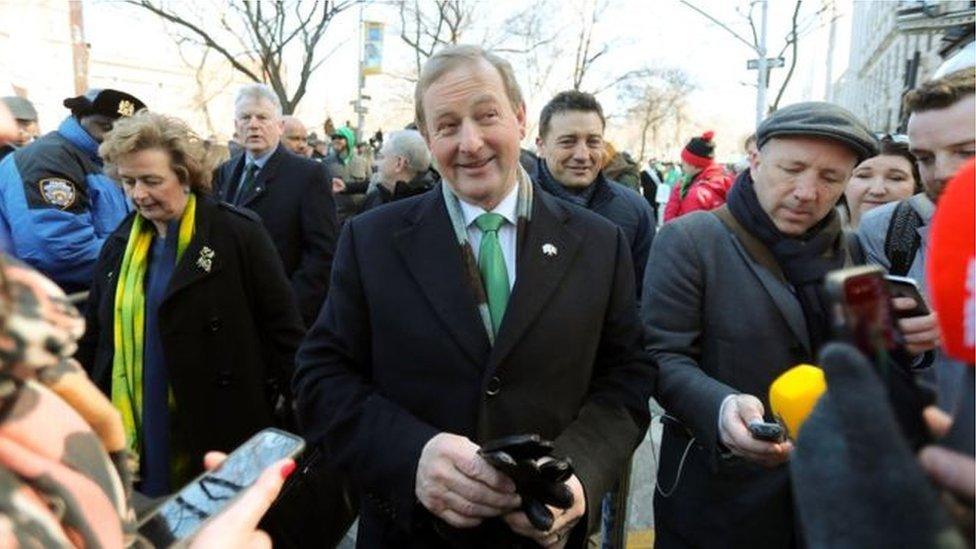
- Published10 April 2017
